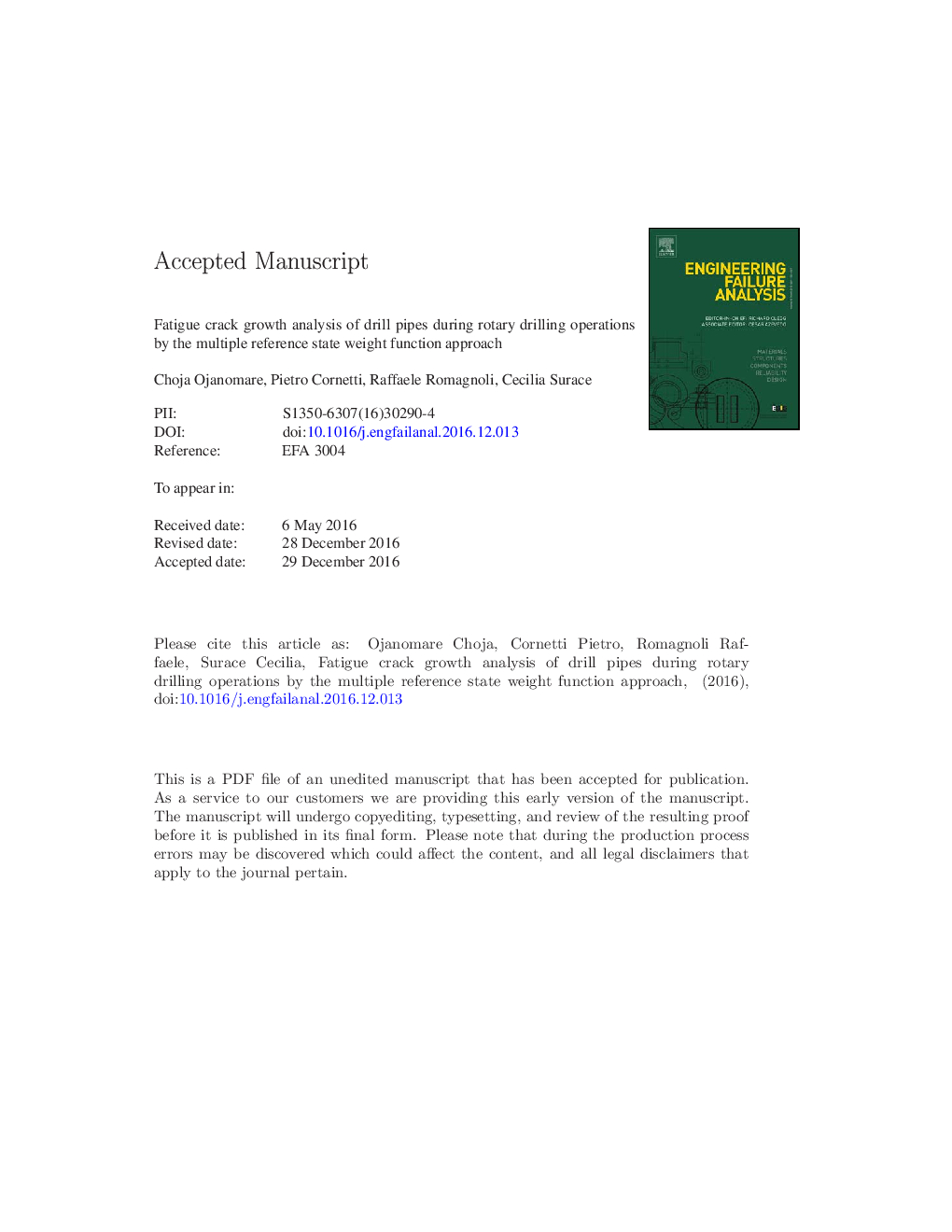| Article ID | Journal | Published Year | Pages | File Type |
|---|---|---|---|---|
| 5013691 | Engineering Failure Analysis | 2017 | 29 Pages |
Abstract
Drill-string fatigue failures are the most common and costly type of failures in Oil & Gas and Geothermal drilling operations. However, the drilling industry currently does not have a means of quantitatively evaluating drill-pipe fatigue fife. The aim of the present study is to fill this gap, providing a rapid and easy means of accurately obtaining drill-pipe fatigue life estimates. The geometry considered is the passage of a drill-pipe through a dogleg. It is characterised by a load combination of tension and bending while undergoing rotation. This load-geometry combination is taken as representative of the present-day drilling. The Stress Intensity Factors along the crack front of a semi-elliptical internal crack in a drill-pipe are obtained by means of Multiple Reference States Weight Function approach that is then implemented in a developed MATLAB code. The developed computer code is validated by comparison with data available in the literature and then applied to the geometry of interest. The Stress Intensity Factors thus obtained are then inserted in the Paris Fatigue Crack Growth Model to quantitatively evaluate the drill-pipe fatigue life. Finally, a parametric study is performed in order to identify the influence of load magnitudes, dogleg, crack shape and geometrical parameters on the fatigue life. A detailed discussion of all these effects concludes the paper. It is the contention of the authors that the method can be easily, rapidly and successfully extended to other oilfield tubulars.
Related Topics
Physical Sciences and Engineering
Engineering
Industrial and Manufacturing Engineering
Authors
Choja Ojanomare, Pietro Cornetti, Raffaele Romagnoli, Cecilia Surace,
